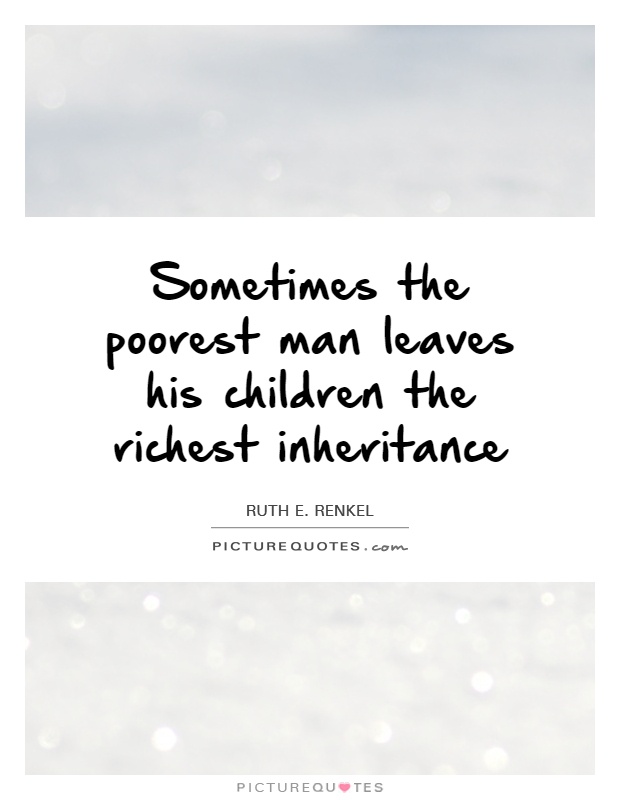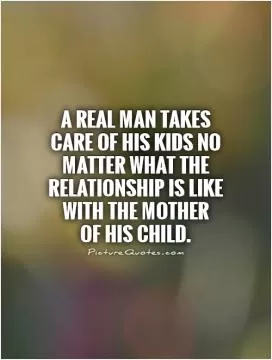Sometimes the poorest man leaves his children the richest inheritance

Sometimes the poorest man leaves his children the richest inheritance
Ruth E. Renkel, a renowned American author and motivational speaker, once said, "Sometimes the poorest man leaves his children the richest inheritance." This powerful statement speaks volumes about the true meaning of wealth and the legacy that one leaves behind for their loved ones.In the context of Ruth E. Renkel's life and work, this quote takes on a deeper significance. Renkel herself came from humble beginnings, growing up in a working-class family in the Midwest. Despite facing financial struggles and hardships, Renkel's parents instilled in her the values of hard work, perseverance, and resilience. These values would shape Renkel's character and guide her throughout her life, ultimately leading her to achieve great success and leave a lasting impact on those around her.
Renkel's words remind us that true wealth is not measured by material possessions or financial status, but by the values and principles that we pass on to future generations. The poorest man, in terms of material wealth, can still leave behind a legacy of love, kindness, and integrity that will enrich the lives of his children and grandchildren for years to come.
In Renkel's case, her parents may not have been able to leave her a large inheritance of money or property, but they gave her something far more valuable – a strong moral compass and a belief in the power of education and self-improvement. These gifts enabled Renkel to overcome obstacles and achieve her dreams, inspiring others along the way.
As a mother and grandmother herself, Renkel understood the importance of leaving a positive legacy for her own children and grandchildren. Through her writing and speaking engagements, she sought to empower others to live their best lives and make a difference in the world. Renkel's legacy lives on through her words and the impact she had on those who had the privilege of hearing her message.












 Friendship Quotes
Friendship Quotes Love Quotes
Love Quotes Life Quotes
Life Quotes Funny Quotes
Funny Quotes Motivational Quotes
Motivational Quotes Inspirational Quotes
Inspirational Quotes